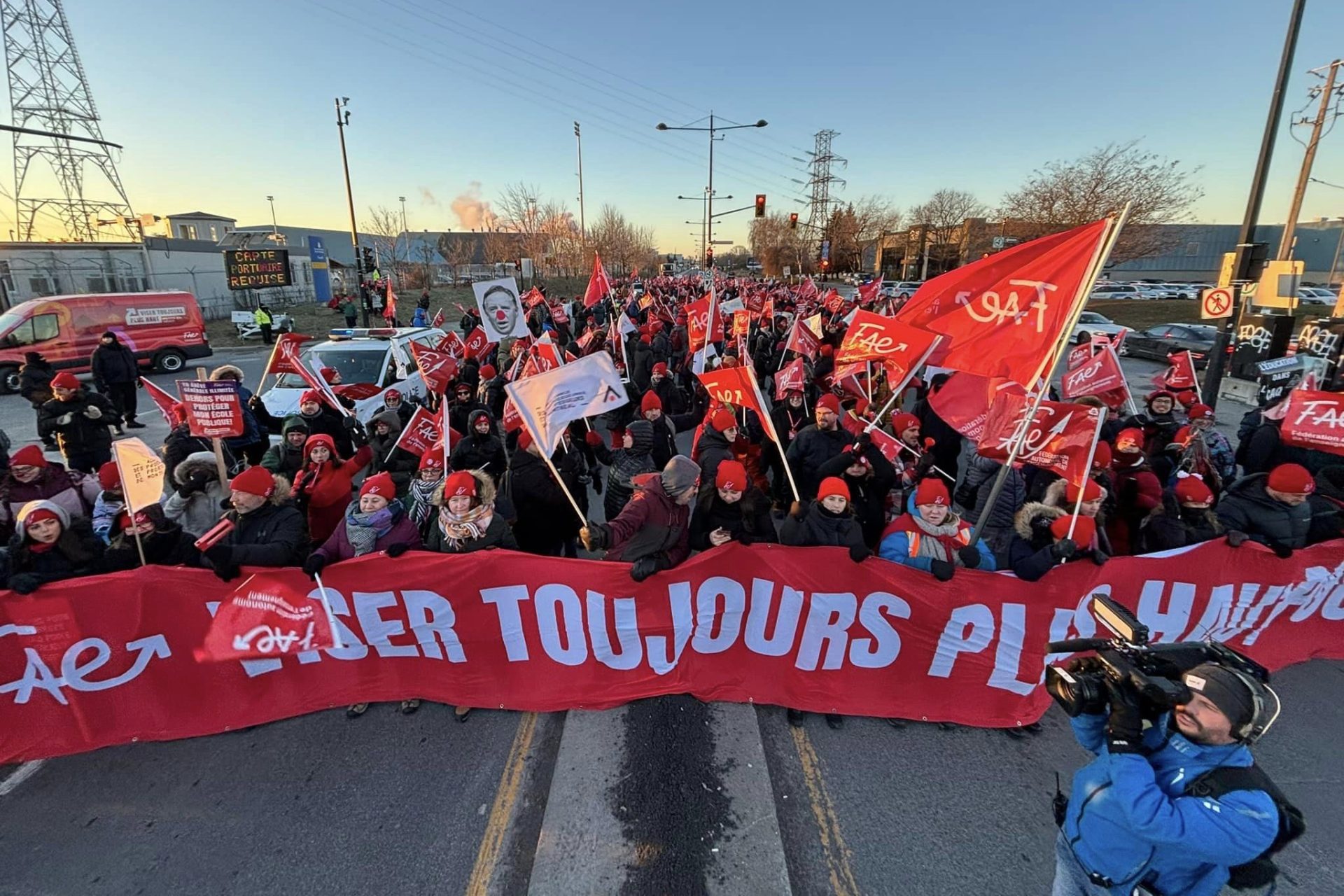
The 2023 public sector negotiations are drawing to a close, and the outcome is bitter.
The leadership of the FAE (Fédération autonome de l’enseignement—representing the teachers) has succeeded in pushing through its recommended agreement with meagre support: just over 50 per cent of union members voted in favour!
For the Common Front (CSN, FTQ, CSQ, APTS), the leadership managed to get away with 75 per cent of members in favor of the global agreement, but it has nothing to boast about for the sectoral agreements. In education, only 59 per cent of members supported the agreement.
Disappointment
The general feeling among union members is clear: disappointment. Despite the Common Front’s insistence that its agreements are historic, they do nothing to solve the public sector’s most glaring problems. The lowest-paid workers feel neglected by these wage increases. The wage indexation that was amongst the union’s demands was abandoned for a 17.4 per cent increase that will barely keep pace with inflation.
But it’s among teachers that disappointment, even anger, is striking. Nothing concrete was won to improve class sizes and teacher-student ratios. Nothing significant has been achieved to address work overload and staff shortages. As one teacher put it, the disappointment is “unanimous.”
‘Reaching the limits of negotiation’
While Legault was on the ropes, and it would have been possible to force him to back down with a concerted open-ended strike, the union leaders preferred to sign an agreement that barely covered inflation. They gladly stopped the fight midway, eventually obtaining a more-or-less status quo arrangement, and were happy not to have to resort to an open-ended general strike.
But what’s particularly revealing is how the FAE leadership justified its agreement, which disappointed everyone.
The president of the FAE explained in a press briefing that the negotiating committee had “reached the limits of negotiation.” “The government chose to settle only at the last minute […] and we [the negotiating committee] went the furthest we could go.”
Tellingly, the government’s view was essentially the same. Education Minister Bernard Drainville said about the teachers’ dissatisfaction with the deal, “We couldn’t give them what we don’t have.” So, government and union leaders agree on at least one thing: in their view, public sector workers couldn’t get anything better.
The fact is that Drainville is not wrong, from his point of view.
Capitalism is in crisis, and has nothing left to offer the working class but miserable public services. Governments impose austerity on the public sector, allowing social services to collapse, while providing billions in funding to private companies like Northvolt. It’s been the same story for decades.
The public sector is so far adrift that only massive investment and a significant improvement in wages and working conditions can save it. When Drainville says he can’t offer what “we don’t have,” he’s admitting that the capitalist system is incapable of satisfying workers and offering quality public services.
But since union leaders have a reformist perspective that accepts the capitalist system, they are forced to accept its limits. So they conduct negotiations with the aim of “convincing” a government of bosses that it’s a “good idea” to improve conditions for public sector workers. But in a period of crisis for capitalism, capitalists have no leeway whatsoever to make concessions to workers, and reformist respect for the “limits of negotiation” reveals its complete bankruptcy.
As long as the unions are led by leaders who refuse to go beyond the limits of capitalism, the trade union movement will continue to go from defeat to defeat.
If you’re tired of getting disappointing deals shoved down your throat by capitalist governments—with the support of reformist union leaders—then help us break the cycle. Join the Communists. Build a force capable of winning the unions to revolutionary ideas, and capable of wresting power from capitalist governments. Join us in building the Revolutionary Communist Party.

